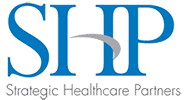Disproportionate Share Hospital 340B Incentives
The Government Accountability Office recommends that Congress removes the financial
incentives the government pays hospitals as part of the 340B drug program. The GAO is concerned that
this financial encouragement results in over-prescribing of medications at Disproportionate Share
Hospitals (DSHs), despite direct opposition to such allegations. Although DSH reported the average per
beneficiary spending at 340B DSH hospitals was $144 compared to approximately $60 at non-340B
hospitals, many argue this arbitrary determination is not considered the complex magnitude of
socioeconomic health determinants in question. The GAO claims hospital characteristics or patients’
health status cannot explain these discrepancies, however many patients of non-340B hospitals receive
medications more frequently in non-hospital settings which may partially explain the reduction of
inpatient spending at those hospitals.
With 40% of all U.S. hospitals participating in the 340B Drug Pricing program, adjustments to this
payment mechanism have massive public implications across the nation. The Affordable Care Act
adopted several amendments to the 340B program as criticisms have circulated since GAO’s 2011
Report. On June 15, 2015 the Health Resources and Services Administration (HSRA) issued several
proposed rules to adjusting the highly criticized aspects of this program. The newly proposed rules
address two ACA provisions: (i) the requirement that HRSA adopt regulations penalizing manufacturers
for overcharging ceiling prices, and (ii) a separate requirement that HRSA “develop and publish through
an appropriate policy or regulatory issuance, precisely defined standards and methodology for the
calculation of 340B ceiling prices.”
What’s Next?
HRSA has announced indications that they intend to publish protocols for audits of
pharmaceutical manufacturers and create a system allowing 340B covered entities to directly access
340B Ceiling prices. Additionally HRSA intends on clarifying hospital eligibility standards and defining a
working definition of a “340B patient.” Meanwhile, the House Energy & Commerce Committee is
drafting provisions to be included in the 21st Century Cures bill which eliminates 340B status for self-
administered drugs by patients at home, and imposes greater accountability for hospitals and contract
pharmacies to report accurate revenue on 340B drug usage. Through successful lobbying efforts,
adjustments have been deterred for the time being, however critics will continue to point out the
lucrative profits yielded by entities such as Duke Hospital who reaped a reported $282 million profit
over five years through reselling 340B-discounted pharmaceuticals on an Outpatient basis to qualified
beneficiaries. Although these provisions have stalled, pharmaceutical companies and legislative critics
continue to argue that current hospital eligibility allows hospitals to participate even if they aren’t
mostly serving patients intended to receive the discounted drugs, the debate certainly will continue.
